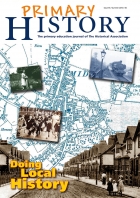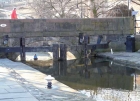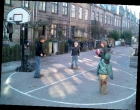Local Study
The importance of local history for developing a sense of place and identity is emphasised by the National Curriculum. The local landscape and buildings can often reveal a great deal about the use of land and the type of people who lived there in the past. Buildings and landscape can reveal how long a heritage the place has had. Monuments and local heritage or parish records can highlight individual local heroes or provide a window into the lives of ordinary local people in times gone by. How similar or different were their lives? Often, the local picture can also help to reveal the national or international picture.
Sort by:
Date (Newest first) | Title A-Z
Show:
All |
Articles |
Podcasts |
Multipage Articles
-

Newspaper Collection
ArticleClick to view -

Local history fieldwork
ArticleClick to view -

Primary History 55: Doing Local History
ArticleClick to view -

'Be bloody, bold and resolute': Two possible interpretations of 'local history'
ArticleClick to view -

Doing local history
ArticleClick to view -

Local history for children: through the eyes of a B.ED. student
ArticleClick to view -

How can citizenship education contribute to effective local history?
ArticleClick to view -

The history teacher's craft: Doing local History through the eyes of W. G. Hoskins
ArticleClick to view -

Introducing local history: the Fusehill Workhouse Project
ArticleClick to view -

A Local History Toolkit
ArticleClick to view -

Planning for local history
ArticleClick to view -

A view from the classroom: Teachers TV, The Staffordshire Hoard And 'Doing History'
ArticleClick to view -

Saltaire: Planning for an effective learning experience on a living site
ArticleClick to view -

Using a local historical figure as a stimulus for history in the English National Curriculum
ArticleClick to view -

Local railway history: using visual resources
ArticleClick to view -

'Doing Local History' through maps and drama
ArticleClick to view -

ICT and Local History
ArticleClick to view -

History in the Urban Environment
ArticleClick to view -

Learning what a place does and what we do for it
ArticleClick to view -

Using Local Buildings
ArticleClick to view

